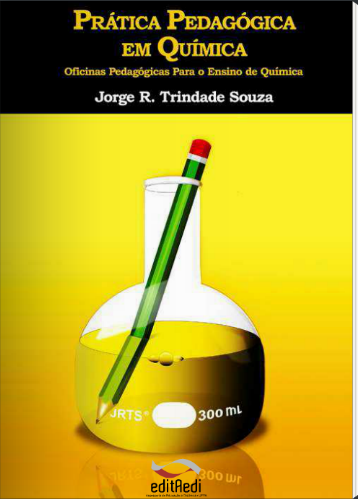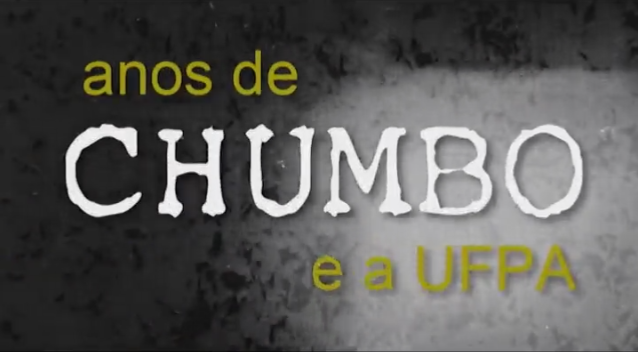Distance Education Consultancy Committee Publishing (EditAEDi)
 |
 |
The distance Education Consultancy Committee Publishing (EditAEDi) is part of AEDi and publishes works of academic nature, supporting teaching, research and extension with eyes on quality. It aims to edit, publish and disseminate the scientific production of the University, primarily those about distance education, of technical, didactic-scientific and cultural purposes, in a digital format, preferably e-books. Since its inauguration, the publisher has made available a total of 32 e-books in the fields of Language and Literature, Chemistry, Mathematics, Social Sciences, among others, which can be accessed on a catalogue for online reading and download.
Library of Mathematical Objects 
[Balancinho]
The Library for Mathematical Objects of the Federal University of Pará (UFPA) is a research project developed since 2012 and coordinated by Macio Nascimento, a professor of PPGCIMES. The project aims to build a repository of concrete objects, videos, animations and games to approximate Mathematics and students of elementary school, high school and higher education in Pará. The project already has a result: the availability of contents related to teaching-learning Mathematics that are common to many courses of teachers’ education and engineering programs. These are learning objects conceived and developed from mathematical concepts that combine ludic and beauty, not dispensing accuracy nor depth that are needed to discuss Mathematical topics. The project already visited schools to test the products and processes, did instructional videos about mathematical objects and a website to be the repository of the production. In its present stage, it works on instruments to evaluate and test the production.
Library of Mathematical Objects: Brachistochrone Curve
Calculus Problems Bank
With the objective of seeking creative and innovative solutions that stimulate the students’ interest to learn Calculus and to restore some gaps in education, Professor Cristina Vaz (PhD), of PPGCIMES, developed a project that aimed to create, manage and deploy a virtual library specialized in Differential Calculus and Integral Calculus to stimulate self-study practices with mediation of assisted activities, and to allow a more active learning of this discipline. For this, a bank of questions, e-books, videos and didactic modules on mathematical applications was developed. Activities such as preparing exams, tests, mocks and exercise lists will be automatized, what will provide teachers and tutors a support system in their work; to students, this will be an environment to practice and to have their performance permanently monitored. Initially, 600 problems are anticipated. Those will be developed by Math teachers with experience on distance education and with the use of ICTs. The bank will have an open system that enables more problems to be submitted, what will allow its expansion in a collaborative way. The library will also have Calculus exercises e-books and a set of Calculus I video classes. It is expected that the library prompts a more active learning f rom the students, promoting autonomy on them. This will greatly impact the number of fails and dropouts in this discipline. In the same way, the expectation is that this environment would become a source for professors and tutors that work on different education levels and spaces to collaborate and collectively produce.
The exercise e-books that are already finished are available on the EditAEDi’s catalogue.
Geociclos – Geosciences in the Everyday Life
The audiovisual program for dissemination of science called “Geociclos: The Geosciences Museum of UFPA and Minerals in the Everyday Life” was developed by the work team behind PPGCIMES. It is part of a series about research groups National Institute of Science and Technology of Geosciences of Amazon (GEOCIAM) and is aimed to present concepts of the area that can be seen in the everyday lives of people, especially children and youngsters in school age. The video features the Geosciences Museum of the Federal University of Pará as a space of scientific knowledge production in a dialogue with the community, as well as some examples of how we deal along the day with some mineral materials studied by Geology that are plentily found in Amazon, such as iron, gold and manganese ores, among others.
Moodle Qualification Course
Funded by the Call no. 015/2010 of the Coordination for the Improvement of Higher Education Personnel (CAPES), the project “Qualification of Multipliers in the Moodle Platform” was one of the five sub-projects that compounded the project “Institutionalization of Information and Communication Technologies in UFPA”, which lasted for 18 months and was dedicated to conceive and produce didactic audiovisual material to qualify users of the platform, working on the formation of human resources, especially UFPA professors, to pedagogically use Moodle in face-to-face and distance education. Eight videos were developed, ranging from 5 to 10 minutes of duration and featuring the pedagogical potential of each tool and examples of application in a virtual classroom. Besides those, other videos with testimonies of professors, tutors and students were also developed to report their experience with the platform.
“Fundamental Concepts of Thermodynamics” Video Series
The work group of PPGCIMES was responsible for the development of the video series “Fundamental Concepts of Thermodynamics”, which features three episodes, with English and Spanish subtitles, about the fundamental concepts to comprehend and study Thermodynamics, such as Energy, Work, Heat and the definition of the 1st Law of Thermodynamics. The videos are made of animations in 2D and 3D that stimulate the visualization and comprehension of concepts by the students. The conception is thought by the Professor Waldinei Monteiro, the host of the series, in partnership with the Laboratory for Research and Experimentation on Multimedia. The full series can be watched here.
UFPA Multimedia Repository
Developed by the Distance Education Consultancy Committee, the UFPA Multimedia Repository gathers mediatic contentes developed in UFPA. It is an open access repository, developed in DSpace, to manage scientific information and to make available the production developed in the institution in many languages (video, audio, photo, animation, games, among others), different of other open access repositories that are dedicated to bibliographical collections. The platform was developed in the scope of the subproject “Implementation of Virtual Multimedia Platform for Teaching and Learning in Undergraduate Degree”, one of the five actions of the project “Institutionalization of Information and Communication Technologies in UFPA”, funded by the Call nº 015/2010 of CAPES, directed to the promotion of ICTs usage in undergraduate courses of Brazilian higher education institutions. Today, the repository has more than 600 items catalogued, of which 65 were produced.
Newton Project

Newton Project is an initiative of UFPA that aims to give a new meaning to Calculus teaching in the Institution, considering the new generations that enter the University connected to digital and multimedia means, as well as to work intensely to decrease high numbers of retention of students in Calculus disciplines (around 70%). Created in 2013 by UFPA Rectory Office in a partnership with the Distance Education Consultancy Committee, the Technology Institute and the Natural and Exact Sciences Institute, this project of Calculus I and II teaching has already reached more than six thousand undergraduate students of these disciplines on the Engineering courses of Technology Institute (Biomedical, Construction, Computer, Food, Telecommunications, Electrical, Mechanic, Railway, Chemical, and Sanitary and Environmental) and in the courses of Mathematics, Physics and Chemistry, Statistic, Industrial Chemistry of the Natural and Exact Sciences Institute, among others, such as Biotechnology, Geology and Oceanography. The proposal is, besides the face-to-face classes, to invest in many educational and communicational strategies in the building of an expanded and extended studying environment, whose distinctive characteristic is the use of ICTs and the position of the student as the center of the learning process. Therefore, what configure these expanded and extended environments are: (a) interconnected and interactive classrooms where the face-to-face classes lectured by the professor take place, simultaneously, for around 630 students of different undergraduate courses and are online live transmitted (www.portal.ufpa.br); (b) weekly face-to-face appointments with instructors to solve questions and exercises in smaller groups; (c) study spaces, both individual and in group; (d) instructors on daily duties to help students with their doubts and clarify the classes’ subjects; (e) virtual classrooms on Moodle; (f) interaction spaces on social media and mobile devices.
UFPA and the Years of Lead

Via a partnership with the research project “UFPA and the Years of Lead: memory, trauma, silence and educational culture (1964-1985)”, coordinated by Professor Edilza Joana Oliveira Pontes (PhD), the group is developing a series of audiovisual materials to document, register and disclose the memories of servants, professors and students of UFPA that from 1964 suffered political harassments, constraints and violations of their human rights. 47 studio interviews were recorded and edited, 5 short programs of 5 minutes each and a video, all of them are available for free access in the institutional repository UFPA Multimedia. The project expects to produce documentaries and other mediatic materials that register and spread the results of the historiographic research that is being carried out about this period in the University.
UFPA and the Years of Lead – The Memories of the 1964 Coup d’État
Divulgation and popularization of student support policies
The Distance Education Consultancy Committee acts in the development of audiovisual materials to divulgate the actions of the Superintendence for Student Support (SAEST) of the Pro-Rectory of Extension of UFPA (DAIE-PROEX), former Directory for Student Support and Integration, based on the National Plan for Student Support of the Federal Government. The material is conceived in an inclusive and accessible perspective, considering the articulation of audiovisual with LIBRAS and Audiodescription. In total, there will be 20 short programs in animation featuring orientations for students to participate more than 30 programs that offer students support, opportunities to reduce dropouts and encourage the continuity of studies and further qualification. The first three videos are already available on the UFPA Multimedia repository, each one of them with a version in audiodescription as well:
UFPA Student Support Policy – Food Needs
UFPA Student Support Policy – Food Needs (Audiodescription)
UFPA Student Support Policy – Continuity Aids
UFPA Student Support Policy – Persistence Aids (Audiodescription)
UFPA Student Support Policy – Students Resident House
UFPA Student Support Policy – Students Resident House (Audiodescription)
Divulgation of teaching actions
PPGCIMES produced a total of 81 short programs of 90 minutes each about the teaching, research and extension actions of the Pará State University, which were broadcast on free-to-air TV and radio, and are also available on a free web space.











